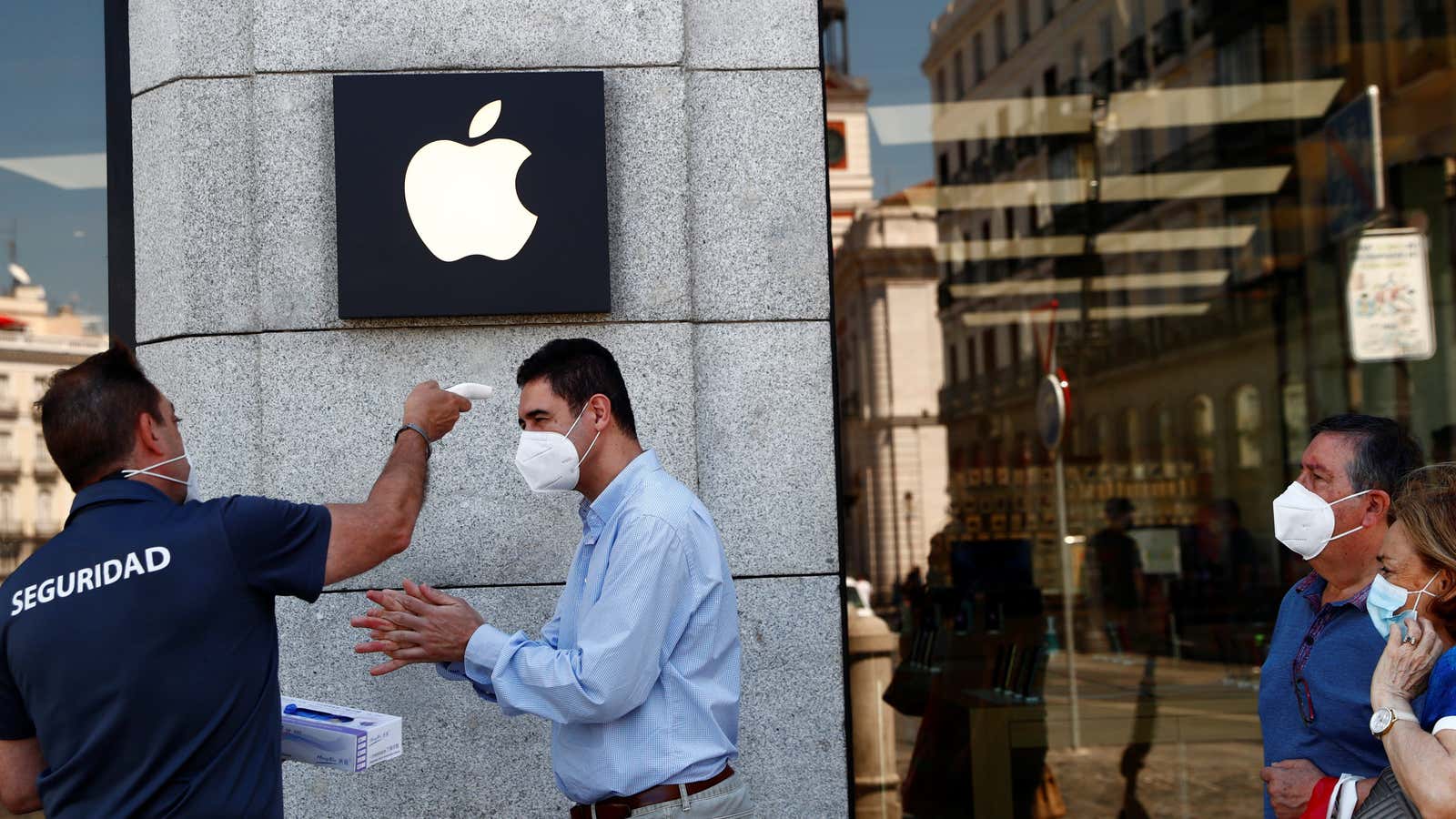The year 2020 was good to Apple. In the last three months alone, covering Apple’s fiscal first quarter ended Dec. 26, the company recorded more than $100 billion in sales, with iPhone sales up 17% year over year. CNBC declared it ”the best quarter in the history of the smartphone.”
Apple CEO Tim Cook did not skip over this during the company’s earnings call. “We saw strong double-digit growth across every product category, and we achieved all-time revenue records in each of our geographic segments,” he said in his introductory remarks.
But suspecting this success was a little embarrassing, a tad crass, given the amount of devastation the year inflicted on people around the world, Cook suggested the mood at Apple was more grateful and resolved than celebratory. “It is not far from many of our minds that this result caps off the most challenging year any of us can remember,” he said. “And it is an understatement to say that the challenges it posed to Apple as a business paled in comparison to the challenge it posed to Apple as a community of individuals, to employees, to their families, and to the communities we live in and love to call home.”
He continued:
“While these results show the central role that our products played in helping our users respond to these challenges, we are doubly aware that the work ahead of all of us to navigate the end of this pandemic, to restore normal life and prosperity in our neighborhoods and local economies, and to build back with a sense of justice is profound and urgent. We will speak to these needs and Apple’s efforts throughout today’s call, but I want to first offer the context of a detailed look at our results this quarter, including why we outperformed our expectations. Let’s get started with hardware…”
Toward the end of his remarks, he returned to the topic of social justice, recapping Apple’s plans to dedicate $100 million to new racial equity initiatives, beginning with a $25 million donation to the Propel Center, a learning hub for historically black colleges and universities, and the launch of the first Apple Developer Academy, this one for coding students in Detroit.
Cook also noted that Apple sent “millions of units of personal protective equipment to healthcare providers in Zambia. And here in the United States, even with Covid’s effects, we are ahead of schedule on our multiyear commitment to invest $350 billion throughout the American economy.”
Cook ended his remarks with an appeal:
“Entire portions of our lives that we took for granted—schools for children, meetings with our colleagues, small businesses that have endured for generations—have simply disappeared. It will take a society-wide effort across the public and private sectors as individuals and communities, every one of us, to ensure that what’s ahead of us is not simply the end of a disease but the beginning of something durable and hopeful for those who gave, suffered, and endured during this time.”
He pledged that Apple would be a partner in this effort. And then the analysts began asking questions—about iPhone switchers and upgraders, about Apple’s progress in the Indian market, and about its new Apple One subscription service.
Even in this age of corporate activism, Apple’s role in the wellbeing of the world wasn’t of much interest, at least not compared to data that might impact second-quarter returns.
